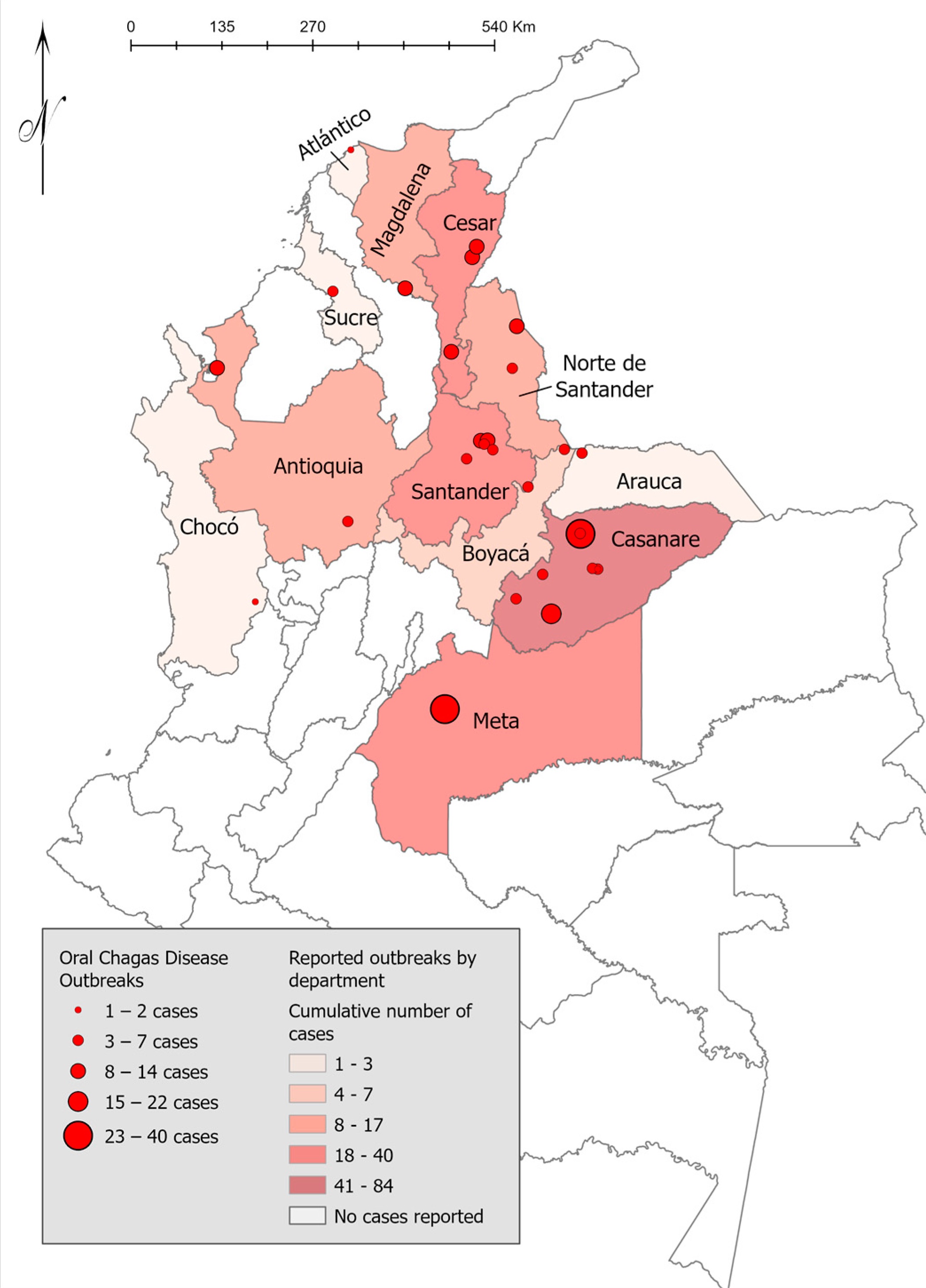Oral transmission of Trypanosoma cruzi, the vector that causes Chagas disease, requires more research and funding for its control, according to a collaborative study, recently published by researchers from different organizations, such as the University of Florida, the University of Antioquia, the University of South Carolina and other experts on infectious diseases and tropical medicine.

Chagas disease is considered endemic in 21 countries of Latin America. The presence of the vector in these areas often leads one to think that the Typoanosoma cruzi parasite is acquired through the vector-borne route. However, there are other ways, such as the vertical or mother-child transmission, being specially relevant as the main cause for infection in the rest of the world through migratory flows. Oral transmission has shown in recent years, according to experts, a constant increase that makes more research urgent and necessary to better understand the life cycle of T. cruzi. Argentina, Bolivia, Brazil, Colombia, Ecuador, French Gyayana and Venezuela are countries where this type of transmission has been described, but it could be significative to others where further investigation is still needed.
The scientific study, titled "Oral Chagas Disease in Colombia — Confirmed and Suspected Routes of Transmission", examines the clinical manifestations of the disease and its routes of transmission in Colombia. Oral transmission is usually associated with the consumption of contaminated food and drink, as well as the consumption of meat from infected wild animals and the juices of certain fruits. But other variants are also detected, such as the consumption of mammalian blood among certain cultural practices in the country.
Another element to consider is geographical, since the increase of cases where the vector is not present suggests the consideration of other routes of transmission, such as oral, which is also estimated to be the most important in communities such as those found within the Amazon basin. Plus, risk is a moving thing, since Chagas disease could reach to those living but also traveling to endemic regions.
From a clinical point of view, incubation period following the oral ingestion is approximately 3 to 22 days, in contrast to less than 15 days for vectorial transmission and up to 160 days for transfusion and transplant-related transmission. Its acute phase can present a number of clinical manifestations, and some of them may cause confusion since they could mimic other other Neglected Tropical Diseases such as malaria or common diseases. On the other hand, a topic of special concern is that Cardiac abnormalities are seen more frequently compared to other routes os transmission , and mortality can reach as high as 35%.
Given the emergence of oral Trypanosoma cruzi transmission, the pathophysiology scientific literature seems to be limited. This reveals the need for greater compromise from the public health surveillance, as well as to continue researching its complex transmission dynamics and further examine its clinical manifestations; in order to generate greater awareness and better understanding of this Neglected Tropical Disease, which will help reduce the burden of Chagas disease throughout Latin America.
On the occasion of the publication of this study, Chagas Coalition had the opportunity to interview Dr. Norman L. Beatty, an expert on Infectious Diseases and Global Medicine at the University of Florida. In this ChagasChat, Beatty briefly shows us the key findings and conclusions he learnt from this essential work.
More ChagasChat at CoalicionChagas.org


